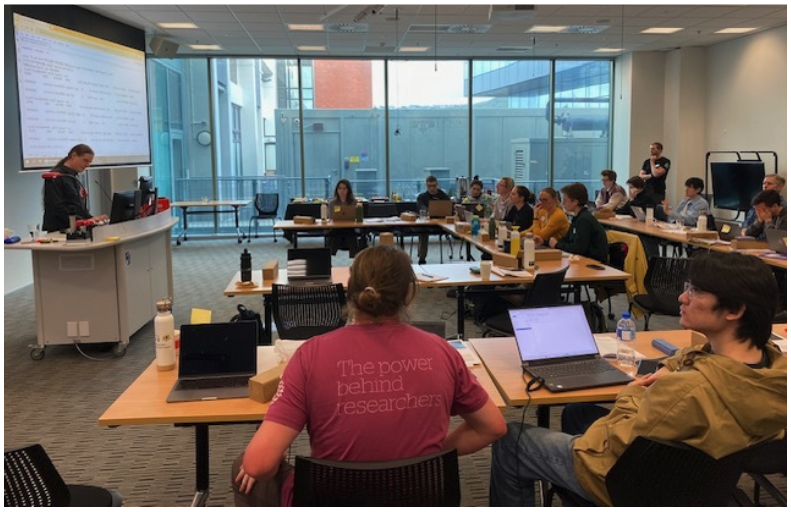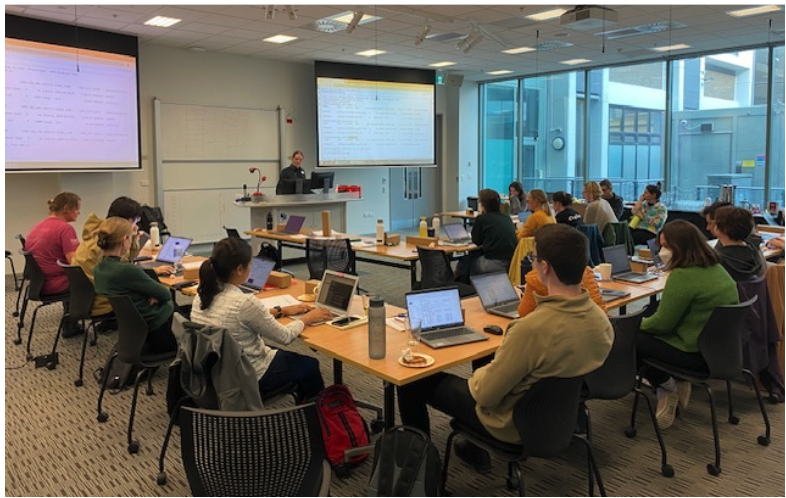Building skills and collaborations for Antarctic science
From 2-4 Sept, as part of the Antarctic Science Platform's (ASP) 2024 Winter School, NeSI team members helped build the computational research skills of early career researchers from New Zealand universities and Crown Research Institutes (CRIs).
Organised and run by the Antarctic Science Platform's National Modelling Hub, the workshop was hosted at Te Herenga Waka — Victoria University of Wellington.
The first day was dedicated to an introduction to High Performance Computing on NeSI systems. Participants learned HPC fundamentals such as navigating the file system, creating and removing directories, copying and moving files. They also had an opportunity to submit their first job to the cluster and monitor its execution.

On days 2 and 3, researchers led the participants through sessions focused on climate models, numerical modelling, and data analysis. Cyclone Gabrielle was used as a use case in these sessions, driving home how climate research is meaningful to the everyday lives of New Zealanders. Attendees were able to leverage the HPC skills they acquired in Day 1 by running their own simulations of Cyclone Gabrielle.
NeSI team members were on hand for all three days helping teach and supervise the interactive sessions together with National Modelling Hub researchers.

Part of a larger national partnership
Since 2020, NeSI's HPC platform has powered projects for ASP's National Modelling Hub, enabling Hub researchers to create improved forecasts and develop new tools that support different models (such as ice sheet, ocean, atmosphere or sea ice models) interacting and informing each other.
NeSI's HPC Platform supports ASP's parallelised numerical ice sheet models and Hub researchers building, compiling and running complex and data-intensive simulations. Many of ASP researchers have also tapped into NeSI's Consultancy service, enabling them to improve the workflow, efficiency, and performance of their models.
So far in 2024, ASP has run 12 different projects on NeSI platforms, ranging in focus from developing a regional-scale climate model for the Ross sea domain, to building a model that quantifies the Ross Ice shelf cavity meltrate and how it may change in the future.
Examples of ASP projects currently using NeSI resources:
- Improving research approaches to predicting sea level rise
- Understanding the impacts of future warming in the Antarctic
- Searching for new insights into atmospheric processes and interactions





